Richard Stokes – Euroleague Director of Officiating – Q&A
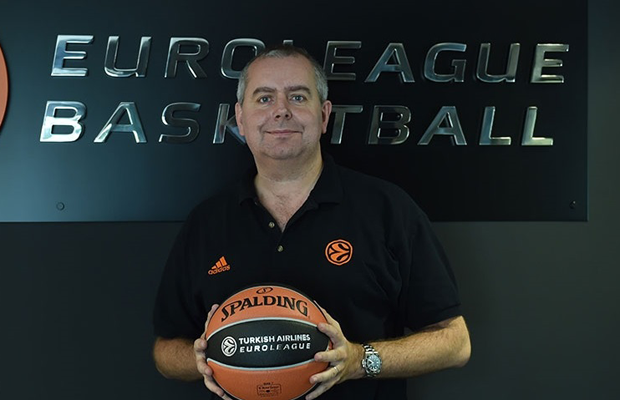
For the latest Hoopsfix Q&A, we sit down with Englishman Richard Stokes, who is currently in the midst of his second season as the Euroleague’s Director of Officiating.
Stokes, 49, started his refereeing career at 18. He qualified as a national referee in England by the age of 20 and became a FIBA referee in 1993. He joined the Euroleague competition as a referee for its inaugural season in 2000-01 and officiated the very first game in the new competition between Real Madrid and Olympiacos Piraeus on October 16, 2000. He also worked the 2003 EuroBasket in Sweden. In 2005, Richard joined the FIBA Europe Competitions and Referee Department and for the next decade he was responsible for the qualification, development and training of international and national referees across Europe, becoming Head of the Department in 2011.
Hoopsfix (H): What is your background/what do you currently do?
Richard Stokes (RS): My background is that I have worked in sport pretty much for the last 20+ years. Off the court I have worked in sales, then later in sports marketing for Nike UK, had a short spell as a professional referee for 3 years when the Euroleague started in 2000-01.
I worked for Basketball England under Keith Mair and then worked at FIBA Europe from 2005-2015 in Munich eventually as Head of Competitions and Refereeing. I returned to the UK last August having accepted the job of Director Officiating for Euroleague Basketball and I am now in the middle of my second season with them
H: What do your day to day duties look like?
RS: I spend a lot of time watching video! With 8 EuroLeague and 8 EuroCup games each week, I have to see as much as possible in order to assess where we are with the officiating each week. I will spend time analysing the games to review the performances of the officials, which in turn generates the feedback and training and development needs of the 62 officials on staff.
I am also travelling to games every week in Europe, usually 2-3 as there is no substitute for seeing the games live and I also travel to our office in Barcelona one week per month to meet with the other departments and the Officiating Dept staff there. Of course there is a lot of emails and phone calls in between.
H: How did you first get into basketball and officiating?
RS: I first played as a 14 year old at school and then in the old Junior NBL. I was coached by Chris Morgan who coached later at East London with Humph Long. I also played locally in Kent and fell into officiating at 18 because my local team needed a referee to play in their league.
I started officiating more and playing less and at 20 went on the National League list, Carlsberg League at 22 and at 25 I became a FIBA referee. At 18 or 19 I realised that all the referees around me were 30+ and that I was somewhat unusual in taking it up so young at that time, I think it was a big advantage for me to be in that position but I was also lucky in where I lived (SE London). There were London, Metropolitan and South Thames Leagues and at that time London League allowed one NBL player in a team. I was also lucky that there were 4-5 FIBA referees in and around London that I could work with and learn from.
H: What do you think are the most important attributes for a successful referee?
RS: Firstly you have to be a good communicator. In some ways that is the most important skill because if you cannot make yourself understood, or understand what others are trying to communicate then you will be at a disadvantage.
In other sports, top officials have one thing in common and that is great communication skills and empathy with the participants, but they are also able balance that with good decisions because they understand the game and their role. Game knowledge and understanding what the players and coaches are trying to do is also a key factor.
You need to know the rules as that is your job, but how and when you are applying the spirit and intent of the rule, is linked to knowing how the game is played especially when you have tough post play for example.
Lastly, you need to be in great shape at the top level and so fitness and image is also important. We are dealing with athletes who are getting stronger and faster all the time and we have to keep pace with that.
H: How important do you think it is for a referee to have played basketball at any level?
RS: Personally, I think it is very important to have played. You may still possibly make it to the top if you haven’t, but from my experience those that have played will find it easier. Of course you can be a good student of the game and still get there, but I think having played has a lot of advantages, even if it was as a junior.
H: What do you say about the state of officiating in the UK?
RS: Having not lived in the UK for 10 years my exposure to the game has been somewhat limited, although as I was responsible for nominating all officials in Europe to various competitions I had to know 300+ referees including those in the UK, many of who I had worked with.
I think officiating is going through a transition process in the UK, with some of the more experienced officials having recently retired. I guess one measure is whether we have officials working at the top level internationally, regularly, and we don’t really have that consistently, as we have in the past. There is certainly an opportunity to move it forward.
H: What are the major issues the British game is facing when it comes to refereeing?
RS: The same as those in other parts of the game, lack of resources. Officiating has never been awash with money and is unlikely to be, but a more co-ordinated approach with regard to the pathway from the bottom to the top is needed, with some hard decisions to perhaps reduce the number at the top in the BBL to focus on the officials with more potential to improve.
As I understand finances also restrict the movement/travel of referees somewhat and at the lower levels of national competition which is another challenge. But from the club’s point of view I understand that they feel there is a lack of consistency from game to game and I think there is some truth in that statement – however there is also apathy from the team and coaches outside of the 4 periods of a game to be part of a process to improve things.
H: What are the strengths and weaknesses you most often see in British referees?
RS: British referees have a good name in Europe, mainly because of the neutrality factor and because historically top officials have been involved in the top flight of international basketball.
At home, the strengths that I have seen are that the officials are prepared to invest in themselves and are generally open to advice on how to improve. On the other side, lack of game knowledge and communication skills tends to hold them back.
H: What is the difference between officiating a junior and senior game?
RS: Good question. Theoretically nothing. Same rules, courts are still 28 x 15. But as mentioned before poor officiating at lower levels will affect the development of the game. We have all seen or heard stories of referees that didn’t treat youth games with ‘respect’ or seriously as it was only an U16 game for example. But you have to apply the rules in the same way and probably with a keener eye in youth games as players need to develop with correct footwork and technique.
Personally, I think you have to approach them the same and when I became a FIBA referee, I was still turning out for Humph Long at Royals or Roy Packham at Crystal Palace on Saturday or Sunday mornings as I felt it was important that the kids had good officiating, at least I hope they did!
H: How does the refereeing down the stretch in close games change in a referee’s mind? More lax/more tight?
RS: I think for the top officials it doesn’t matter. I have of course heard officials say that in the last 5 minutes we cannot make any mistakes and of course that is true as you don’t want a mistake to decide the game. But surely it should be the same way for previous 35 minutes as well?
The same can be said of a players’ 5th foul, but if the 4 that got him or her to that point were shaky, that is also a factor. Of course in a close game, officiating errors should never affect the outcome but we should never confuse that with a correct decision that clearly affects the outcome.
The question is always this: Do we have the same criteria for 40 minutes? If we do then it will be the participants that will (and should) decide the result. Mistakes that are mental errors are also linked to physical fitness which can be telling at the end of a game. This is another reason why physical conditioning is so important.
H: What is your biggest regret/worst call in officiating a game?
RS: If you mean personally it was a Wembley semi-final with Derby v Worthing in the 90’s. Back then we had 2 person officiating and Tim Lascelles took a 3 pointer I think to tie the game in the last 15 or 20 seconds. I got a bad look because I was not ready for the play and couldn’t get any help. I called it as a 2 pointer, Tim Rudge the coach went apoplectic and Derby lost by one, I think.
Before I got to the locker room Sky TV told me I got it wrong and I was devastated. However, it made me work harder, especially at the end of games, it was a tough lesson for me, but much tougher for the players and fans. Many of the Derby fans still remind me of that game in a light-hearted way but I believe I never missed another game deciding play. I always busted my ass and tried to finish strong at the end of games after that.
H: Proudest moment/achievement in refereeing?
RS: Many. Becoming a FIBA Referee in 1993 at the age of 25 made me very proud and thankful for all the help that I had received from so many people in getting there, so this would be one for sure.
My last two roles as Head of Refereeing in Europe and now as Director Officiating with Euroleague are also a source of pride as Englishmen are not usually considered for those roles, instead they go to people from ‘bigger’ basketball countries.
H: How does the refereeing in the NBA and Europe differ, in your opinion?
RS: Not so much as it used to or you may think. We have had Euroleague officials in the NBA Europe games and they do not look out of place in terms of play calling compared to their American counterparts. But there is a difference in the approach and the level of professionalism which is only natural if as an NBA referee it’s your full-time job.
I do think we have more support than the NBA provides, but don’t forget it is effectively a national league in the NBA, with one language and culture. In Europe we have differences in both, as well as in styles of play and coaching. I do see European referees getting closer. Close enough to see one in the NBA? I think it’s possible. But the technological resources that the NBA for the officials in games have are huge, we are some way behind that.
H: How does the refereeing in England compare to mainland Europe?
RS: I would suggest we are some way behind, but this comes from exposure to the level of competition as well as the support and training. I think that mainland Europe has generally a higher standard of national competition and therefore the officials have to be better.
I cannot say that the infrastructure for officiating development is always better, but there is more technical knowledge and more officials have played at a better level before turning to officiating.
H: If you were to overhaul the officiating system in the UK what are the first steps you would take?
RS: I am not sure that I am well placed to answer that. I am not evading the question, but I simply do not know enough detail to give an honest answer. I know that BE is embarking on a new project to raise standards and I am all for that.
But I think it starts with consistent education and giving clear direction regularly to officials. Secondly, it is that the coaches must be involved in this process to understand and input into this process. Their direct participation can be very important, but I understand that this has not been possible so far.
H: How much does poor officiating affect the development of young British players?
RS: If it is poor, in can affect it hugely. I have seen a lot of players with athleticism and strength, but with poor technique go nuts when they are penalised or called for a foul of violation. Either they do not know the rules (which is possible), or they are not being called for these illegal actions and so they become the norm, which is more likely.
I appreciate that a lot of players copy NBA players, but as an example the NBA travel rule is different than the FIBA one – Of course we can have a great discussion on which one is the best! But more than that is the explanation as to why it is wrong – I could give a lot of examples from this season that I have seen at U16 and U18 already.
H: What are the biggest misconceptions in your mind about officials?
RS: One of the things that you mentioned, that officials get tight or lax at the end of a game, or that they don’t care as much as they should. Probably the latter is true, but for different reasons. They don’t care who wins, which is probably a good starting point but in applying the rules and interpretations correctly, the best team should win on any given night and on that basis they should care!
Lastly that they don’t know the rules – I would guess that most them know the rules better than the players and coaches – but in Europe there is less of a gap in this respect, much less!
H: What is the biggest mistake you see players making in terms of the rules of the game?
RS: a) Not understanding the travel rule is one.
b) Not understanding what is legal or illegal contact – it is possible to play physical and tough without being illegal, but many don’t know how, especially at the youth level.
c) Confusing NBA (that they watch) with what we have in Europe (FIBA rules)
H: What is the best way to improve as an official?
RS: Never think you know it all and always be ready to learn. Be a student of the game, which means knowing your job and also what the coaches are doing – go to a coaching clinic if you can, or spend time with coaches at their training sessions. Watch the best officials and take the parts you like that are good, for your game. If you can see if a senior referee will be prepared to mentor you.
One other thing, some people feel referees are important – well, it is nice to be important, but it’s more important to be nice, being humble, being open and being ready to communicate effectively will also help you climb the ladder in addition to the above points.
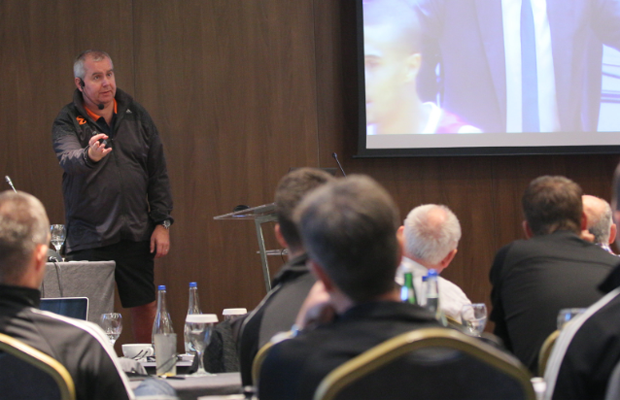

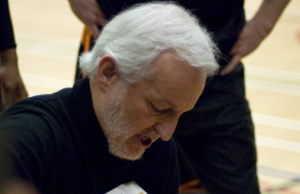
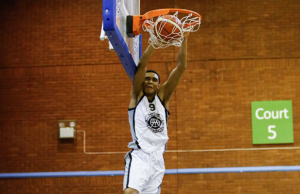
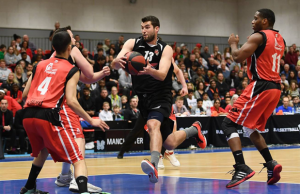

0 comments